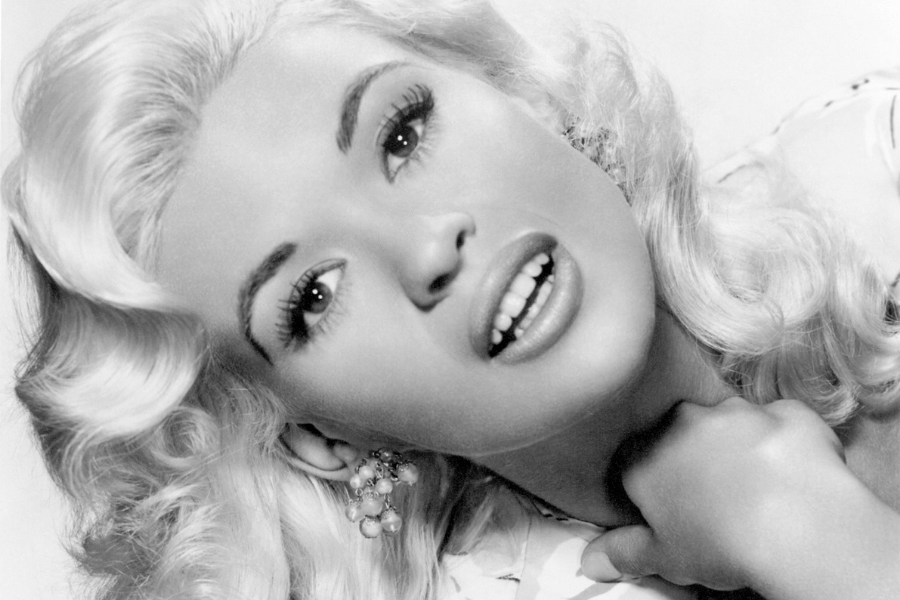Mariska Hargitay admittedly believed her mom to be the sex symbol Hollywood made her out to be, but in her new documentary she finds out Jayne was so much more.

In the HBO Max documentary My Mom, Jayne, actress Mariska Hargitay pulls back the curtain on her famous mother, Jayne Mansfield. Known for her larger-than-life persona and bombshell beauty, Jayne was one of the most recognizable sex symbols of the 1950s—but behind the pink palace and platinum curls was a deeply complex woman.
Born Vera Jayne Palmer, she was more than just a pretty face. Jayne was a gifted pianist and violinist, fluent in multiple languages, and fiercely intelligent. To get her foot in the door, she leaned into the “dumb blonde” image that Hollywood adored, modeling herself after Marilyn Monroe. But after Marilyn’s tragic death, Jayne realized how confining that persona truly was. She began pushing against the boundaries of her own fame, trying to change the public’s perception of her—but Hollywood had already made up its mind.
Off-screen, her life was marked by struggle. Jayne married and later divorced bodybuilder and actor Mickey Hargitay in 1963. While some believed he was one of the few positive influences in her life, their relationship was not without tension. As her career faltered, Jayne began performing in nightclubs to make ends meet. Her personal life unraveled—she struggled with substance use, a rocky third marriage to director Matt Cimber, and a chaotic home life that left her children confused and emotionally adrift.
Jayne’s tragic death came in 1967, when a car she was riding in struck the rear of a truck. Jayne, her lawyer Sam Brody, and the driver were killed instantly. Remarkably, her three children—Mariska included—survived in the back seat. Hours before the crash, Jayne had called Mickey to say she planned to move to the front so the children could sleep more comfortably in the back. That choice saved their lives.


Jayne Mansfield died without a will, and most of her possessions were sold off by the state to settle her debts. One storage unit containing family belongings remained untouched since 1969—until Mariska opened it for this documentary. What she found inside reopened old wounds, unearthed family secrets, and changed the way she saw herself.
For most of her life, Mariska believed Mickey Hargitay was her biological father. She spent summers with her grandmother, who subtly implied otherwise, but the truth remained hidden until she was 25. A man who had run Jayne’s fan club showed her a photo of her mother with another man—Nelson Sardelli—and revealed there had long been rumors that he was actually her biological father.
Years later, Mariska attended one of Sardelli’s shows. When he saw her in the audience, he burst into tears and said, “I’ve been waiting 30 years for this moment.” The documentary confirms that Nelson Sardelli is her biological father. But what makes the story more moving is Mickey Hargitay’s response when she once brought it up to him. Deeply hurt, he insisted, “I am her father.” From that point on, the subject was never discussed again.
Mickey raised Mariska as his own with unwavering love, never treating her any differently from his other children. The documentary honors that profound bond and redefines what it means to be a father—not through biology, but through presence, love, and commitment.


One of the most poignant moments in My Mom, Jayne comes at the very end. Jayne Mansfield’s famously over-the-top Pink Palace was sold to singer Engelbert Humperdinck ten years after her death. Though the home was demolished in 2002, Humperdinck held onto one priceless piece of Jayne’s legacy: her original grand piano.
In a powerful surprise, Mariska’s husband arranged for the piano to be restored and delivered to their home. The moment it arrives is deeply emotional. Seeing the instrument that once sat in her mother’s living room—now in hers—brings tears and healing. It symbolizes a reconnection to Jayne, not as an icon, but as a woman, a mother, and a deeply human soul.
Jayne’s gravestone reads, “We live to love you more each day.” It’s a line that captures the spirit of this documentary. My Mom, Jayne is more than a film—it’s a love letter from a daughter to a mother she barely knew, a reflection on identity and loss, and a powerful reminder that behind every icon is a human story waiting to be told.

